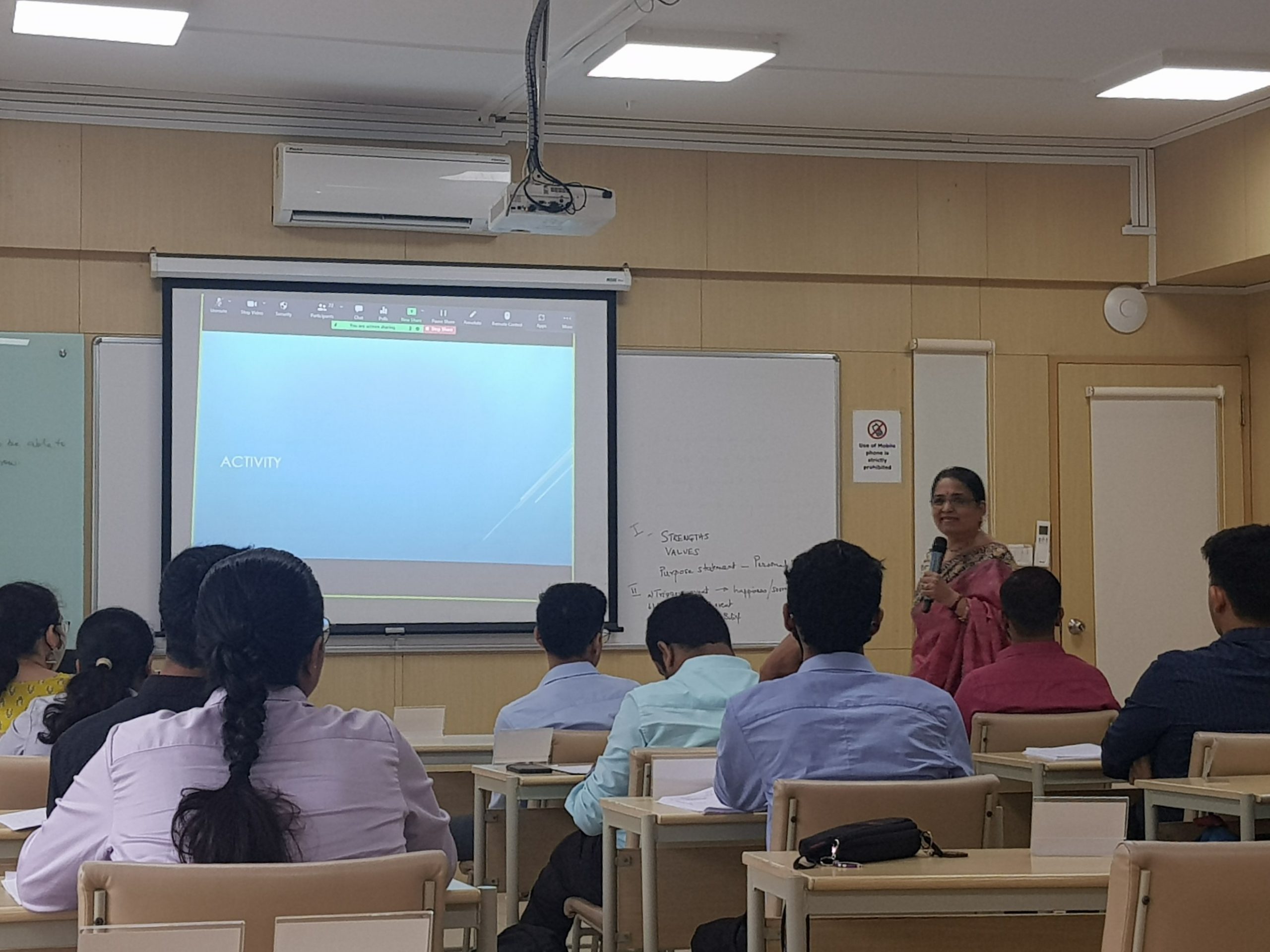The WIRTGEN GROUP, headquartered in Germany, is the World’s No. 1 in the field of mobile Road Construction and Road Rehabilitation equipment. The group of companies presents itself with its strong c... read more

As the fastest growing economy today, India houses nearly half of its population below the age of 25, and a quarter below the age of 14, providing a unique demographic advantage and making India’s young population it’s most valuable asset.
This is a good enough reason to believe that Self-management must start early in a person’s life, the best time being in school if not in college life. Self-management is our ability to manage our behaviours, thoughts, and emotions in a conscious and productive way and much required skill in this fast paced world.
While on this journey of young adulthood, where identities are shaped by many others, where important choices are being made regarding their future life, career, and other significant aspects which shape their identity, just how well prepared are they to make them? How these choices are both a milestone and an inflection point, which can be transformative. At this stage they desire to be independent and be able to make life’s decisions and ought to learn to wean themselves from parents and other elders who have been influencing their lives so far.
The most critical questions in a young adult’s life is how much do they know about themselves and what they really want? And they are yet to learn to take accountability for life’s decisions, which then makes Self-efficacy and Locus of Control important factors in decision making. Self-efficacy is where an individual believes in himself and Locus of control sets to see how internal and external factors play a role in an individual’s decision making process.
In the young adult life’s journey, learning Life & Self-management skills becomes critical. These are very important workplace skills as well and it is important to learn them at a much younger age. Can we embed them in our education system? Self-managed individuals require the following abilities:
If young adults are expected to make critical decisions for themselves, adults around them must wean themselves and allow independent thinking, help them to factor in different viewpoints to consider the numerous variables for thoughtful decisions and learn to separate the emotions from the conversations they have with people that’ll influence their decision-making.
While young adults might sometimes think they’re invincible, taking care of physical well-being including keeping good health, through planning and preparing healthy meals, tracking and, and finding a type of exercise that is engaging enough to want to do it regularly. Also caring for themselves emotionally and mentally.
Possibly the most important skill for young adults to master time management. When parenting teens, it’s natural to fall into the habit of creating a calendar for them and enforcing appropriate times for college, sleep, appointments, and recreation. How can Freedom be balanced with Discipline is the skill?

Keeping a living space liveable is a surprisingly complex process. Managing laundry to waste, dealing with incoming mail to maintaining a clean home environment is quite a challenge. While it is overwhelming, with self-awareness and coaching this can ease the transition to independent adult.. At this stage, young adults also need to know how to educate themselves about national issues, and laws that are applicable to them and the potential consequences if they ignore them and how to respond to the call to serve their community.
No parent, teacher, or friend, no matter how well-meaning, can take on the responsibilities of citizenship for another person.
Youngsters face stress in their life due to catching up with their career choices, relationships, transition to independent living, and above all, learning to navigate that reality is an important skill for all young adults moving towards independence. While money, work, relationships, and prospects for the future can all cause anxiety, learning one’s own triggers and how to cope with them is a highly individualized process. Based on their likes and interests they may use breathing exercises or meditation, also journaling. Exercise, music, and spending time in nature can be therapeutic.
If only Life skills orientation is given at the right time to youngsters, there is no doubt that they will be able to develop and exhibit an accurate sense of Self, develop a deep understanding of personal motivation to take up personal and professional responsibility. And finally they will be able to demonstrate their personal beliefs and values and a commitment to continuing personal reflection.